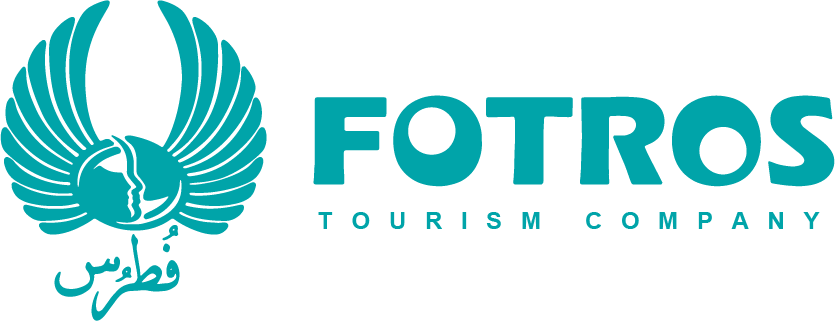
Medical Surgeries
LASIK


LASIK, which stands for "Laser-Assisted In Situ Keratomileusis," is a popular surgical procedure used to correct vision problems, primarily myopia (nearsightedness), hyperopia (farsightedness), and astigmatism. It is a type of refractive eye surgery, which aims to reduce a person's dependency on eyeglasses or contact lenses.
Here's how LASIK works:
Corneal Reshaping: The procedure involves reshaping the cornea, the clear front surface of the eye, to change the way it refracts light. This is done to correct the patient's vision problems.
Creation of a Flap: A thin flap is created on the outer layer of the cornea. This can be done using a microkeratome (a precision surgical instrument) or a femtosecond laser. The flap is then lifted to expose the underlying corneal tissue.
Laser Reshaping: An excimer laser is used to precisely remove a small amount of corneal tissue, reshaping it to the desired curvature based on the patient's specific vision prescription. This step is responsible for correcting the refractive error.
Flap Repositioning: After the corneal reshaping is complete, the corneal flap is carefully repositioned.


Healing and Recovery: The corneal flap typically adheres naturally without the need for sutures. Patients are usually provided with eye drops and instructions for post-operative care to facilitate healing.
LASIK surgery is known for its rapid recovery, with most patients experiencing improved vision within a day or two. However, full stabilization and optimal results may take a few weeks to several months.


Lasık ıs suitable for everyone?
It's important to note that LASIK is not suitable for everyone. Eligibility depends on various factors, including the individual's age, eye health, and the specific characteristics of their vision problems. It's essential to consult with an experienced ophthalmologist or eye surgeon to determine whether LASIK is a viable option and to discuss potential risks and benefits.
Lasik’s alternative surgeries:
While LASIK is a common and effective procedure, there are alternative refractive surgeries like PRK (Photorefractive Keratectomy) and SMILE (Small Incision Lenticule Extraction) that may be recommended in certain cases. Your eye care professional will help you make an informed decision based on your unique needs and circumstances.




Before LASIK Surgery:
Consultation: Schedule a consultation with an experienced ophthalmologist or LASIK surgeon to determine if you are a suitable candidate for LASIK. Your eyes will be thoroughly examined, and your medical history will be reviewed.
Discontinue Contact Lenses: If you wear contact lenses, you'll typically need to stop wearing them for a certain period before the procedure. The duration depends on the type of lenses you wear; soft lenses may require a few days of abstinence, while rigid gas-permeable lenses might need several weeks.
Arrange Transportation: Plan to have someone drive you to and from the LASIK clinic on the day of the surgery, as you might not be able to drive immediately after the procedure.
Follow Pre-Operative Instructions: Your surgeon will provide specific instructions regarding any medications you should take and any other pre-operative preparations. This might include avoiding makeup, lotions, and eye products on the day of surgery.
After LASIK Surgery:
Rest: After the LASIK procedure, you should rest for a few hours. It's normal to experience some discomfort, mild burning, or itching in your eyes during this time.
Use Prescribed Eye Drops: Your surgeon will provide you with a set of eye drops, including antibiotic and anti-inflammatory drops, to help with healing and prevent infection. Use them as directed.
Protect Your Eyes: For the first few days after surgery, it's crucial to protect your eyes from potential irritants. This may include wearing eye shields at night to prevent rubbing your eyes while you sleep.
Avoid Strenuous Activities: Refrain from strenuous activities, including heavy lifting and contact sports, for a few weeks to reduce the risk of injury to your eyes.


Follow-up Appointments: Attend all scheduled follow-up appointments with your surgeon to monitor your progress and ensure your eyes are healing properly.
Limit Screen Time: Limit screen time and exposure to bright lights for the first few days after surgery, as this can cause eye strain.
Follow Post-Operative Instructions: Your surgeon will provide you with detailed post-operative care instructions. Follow these instructions carefully to ensure a smooth recovery.
Be Patient: It can take a few days to several weeks for your vision to stabilize. Your vision may initially be blurry or fluctuate, but this typically improves over time.
Report Any Complications: If you experience severe pain, sudden vision changes, increased redness, or other concerning symptoms, contact your surgeon immediately.


Guidelines and recommendations regarding eating and drinking to ensure the procedure goes smoothly
Here are some key points to consider:
Fasting: Most LASIK surgeons will advise you to fast for a specific period before the surgery, typically around 4-8 hours. This means refraining from eating or drinking anything, including water, during this fasting period.
Medications: Your surgeon will guide any specific medications you may need to take before the surgery. Follow their instructions carefully.
Alcohol and caffeine: Avoid alcohol and caffeine for at least 24 hours before the procedure, as these substances can affect your eye's hydration and the accuracy of measurements taken during the surgery.
Contact lenses: If you wear contact lenses, you may be instructed to stop wearing them for a certain period before the surgery (typically one to two weeks) to allow your corneas to return to their natural shape.
Makeup and lotions: On the day of the surgery, avoid using makeup, lotions, or perfumes, as these can leave residue on your skin and eyelids that may increase the risk of infection.
Comfortable clothing: Wear comfortable and loose-fitting clothing to the surgery center. You may also want to bring sunglasses to protect your eyes from bright light after the procedure.
why Iran
Iran has gained recognition for offering high-quality medical services, including LASIK surgery. Several factors make Iran suitable for LASIK surgery:
Skilled Surgeons: Iran has a well-established medical infrastructure with highly skilled ophthalmologists and refractive surgeons. Many of them have trained internationally and stay up-to-date with the latest surgical techniques and technology.
Advanced Technology: Iran's ophthalmic clinics and hospitals are equipped with state-of-the-art technology for refractive surgeries, such as LASIK. This technology ensures precision and accuracy during the procedure.
Affordable Costs: The cost of LASIK surgery in Iran is considerably lower than in many Western countries, making it an attractive option for medical tourists.


Patients can receive top-quality care at a fraction of the price they might pay in their home countries.
Quality Healthcare Facilities: Iran has modern healthcare facilities and hospitals, providing a comfortable and safe environment for patients undergoing LASIK surgery.
Medical Tourism: Iran actively promotes medical tourism and has established medical tourism centers to assist international patients in navigating the healthcare system. This support makes the process of traveling to Iran for LASIK surgery more accessible.
Strict Quality Standards: The Iranian Ministry of Health has established strict quality control standards for medical procedures, ensuring patient safety and high-quality care.
Experience and Expertise: Iran has a long history of providing refractive surgery, including LASIK, and has accumulated extensive experience and expertise in this field.


Our services include:
![]() our online services include: quotes and consultation
our online services include: quotes and consultation
![]() Planning the highest word-level medical trips and quality hospitals and medical centers according to the patient's request and budget.
Planning the highest word-level medical trips and quality hospitals and medical centers according to the patient's request and budget.
![]() Appointing treatments by the most skilled and experienced doctors.
Appointing treatments by the most skilled and experienced doctors.
![]() Airport pick-up/drop off, check-ups, accompanying translator, book hotel (for patients and their families)
Airport pick-up/drop off, check-ups, accompanying translator, book hotel (for patients and their families)
![]() Pre-hospitalization / post-hospitalization care services
Pre-hospitalization / post-hospitalization care services
All-Inclusive Medical Travel Packages
based on your budget, our team will assist you in choosing the best hotels, doctors, and medical centers. Our packages include:
 Airport Pickup Services
Airport Pickup Services Airport Dropoff services
Airport Dropoff services Hotel
Hotel Ticket
Ticket visa
visa translator
translator Transfer
Transfer SIM Card
SIM Card Sightseeing
Sightseeing


 why Iran
why Iran
Patients may choose to have abdominoplasty (commonly known as a tummy tuck) in Iran for a variety of reasons
Cost, Quality of Care, Privacy and Discretion, Combined Tourism, no Waiting Times
![]()
Fotros is an Iranian health tourism company with a professional team consisting of a support team and word-level doctors in medical and cosmetic surgeries like Neurosurgery, Rhinoplasty, Breast cosmetic surgeries, Liposuction, tummy tuck, etc.










 why Iran
why Iran